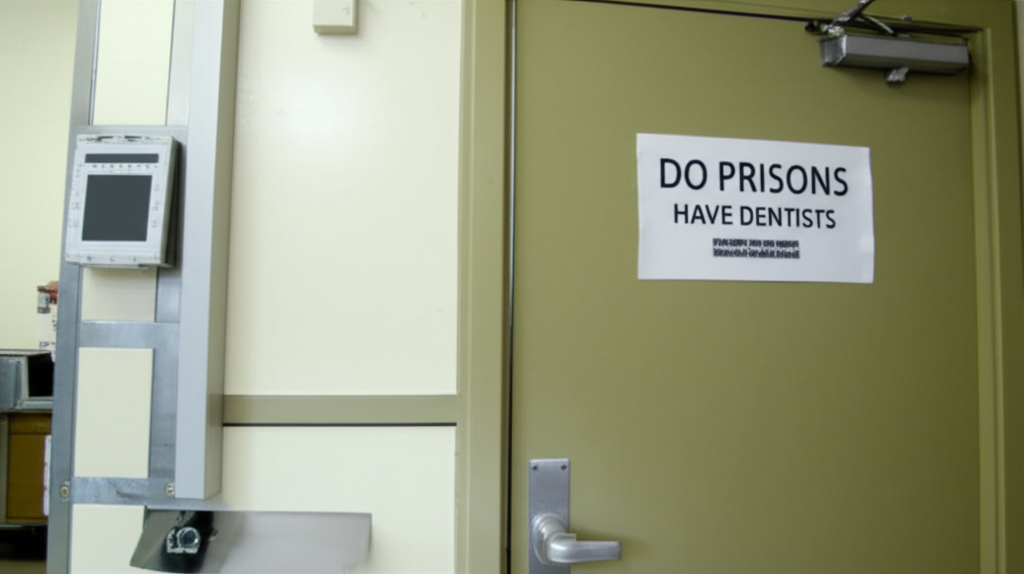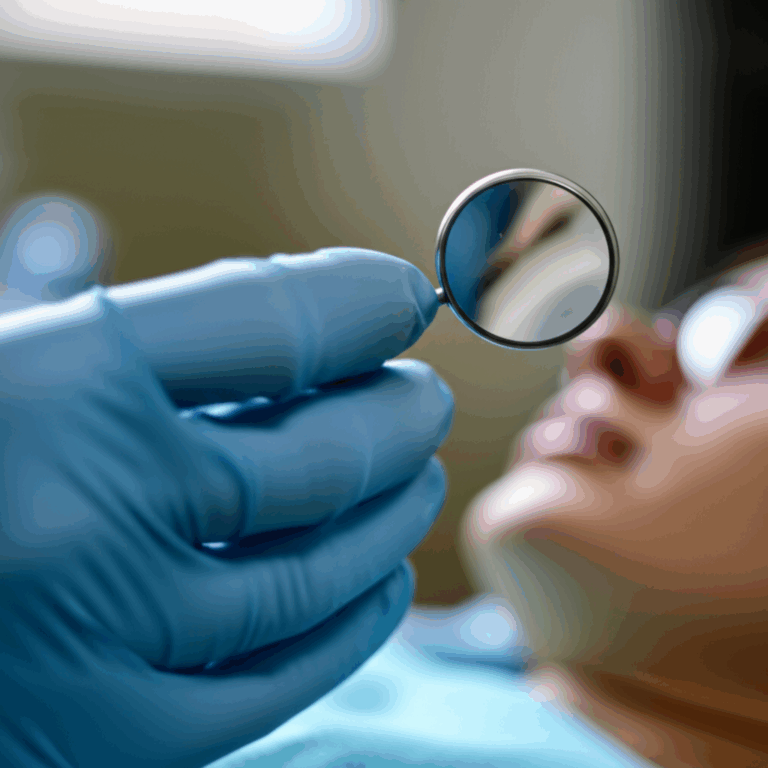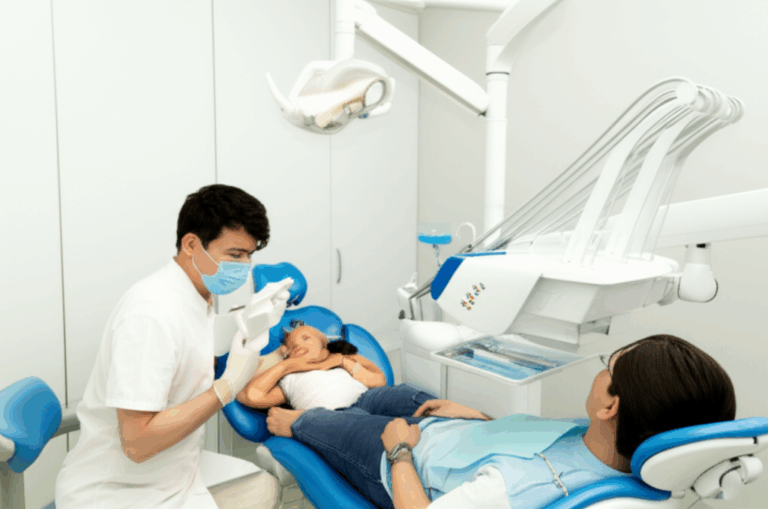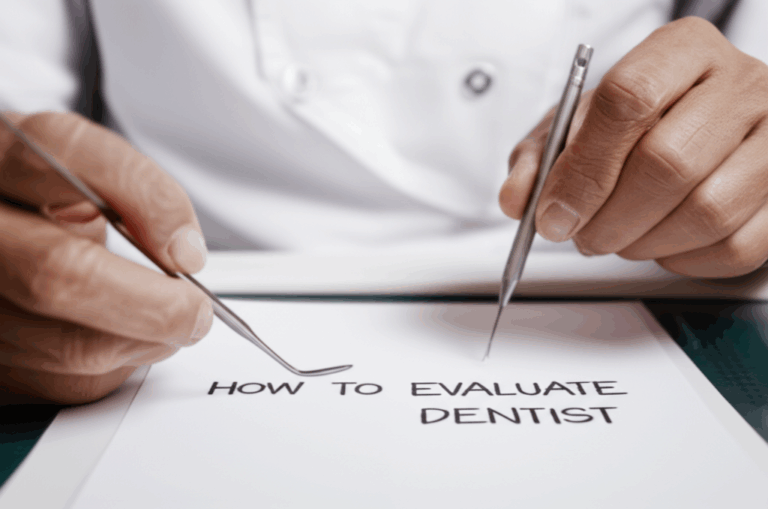
Do Prisons Have Dentists? Understanding Inmate Dental Care
Summary:
Ever wonder what happens if someone in jail gets a really bad toothache? This article explains if prisons have dentists, how inmates get dental care, and what treatments they actually get. You’ll understand the problems, why dental care matters for inmates, and why this idea means more than just fixing teeth. I’ve seen how tooth problems can mess up anyone’s life. In prison, the risk is even higher. By the end, you’ll see why this is a side of justice and health care that not many people talk about.
Table of Contents
- The Rule for Dental Care in Prisons
- Why Do Prisoners Need Dental Care?
- What Dental Care Do Inmates Really Get?
- Do Prisons Help with Dental Emergencies Right Away?
- Is Regular and Preventive Care Possible?
- Can Inmates Get Special Work Like Root Canals or Dentures?
- What Are the Main Problems With Dental Care in Prisons?
- Who Gives Dental Care in Prisons?
- How Does an Inmate Ask to See a Dentist?
- What Happens If Dental Needs Aren’t Met?
- How Is Prison Dental Care Different from Regular Dentistry?
- Conclusion and Main Points
The Rule for Dental Care in Prisons
When people go to prison, they don’t lose their right to basic health care, including dental care. The Eighth Amendment in the U.S. Constitution says no cruel or harsh punishment. The Supreme Court made this clear in Estelle v. Gamble. The court said that “not caring about serious medical needs” — this includes dental — is illegal.
Prisons also follow rules made by groups like the National Commission on Correctional Health Care (NCCHC) and the American Correctional Association (ACA). These groups set rules so people in prison can keep their teeth healthy — or at least, stay out of pain. Without these rules, tooth problems would get worse fast.
By law, every prison should have some way to see a dentist. But “should” and “does” don’t always match up. Sometimes, there’s a big gap between the rules and what happens in real life.
Why Do Prisoners Need Dental Care?
Think about the last time you had a toothache. Now think about being stuck behind bars with almost no choices. Many people come to prison with bad dental problems already. This happens because of poverty, hard lives, addiction, and no way to see a dentist before.
Prisoners often have:
- Cavities
- Gum problems
- Broken teeth
- Lost teeth
- Mouth infections
It’s not just about pain. Bad teeth can make it hard to eat, talk, and can even hurt the rest of the body. Inmates who can’t chew get stomach problems. Tooth infections, if left alone, can get deadly. In prison, a toothache isn’t just an ache — it can get very serious.
What Dental Care Do Inmates Really Get?
When people ask, “Do prisons have dentists?” they really want to know, what kind of dental work happens in jail? Here’s the truth.
Almost every prison has some dental care, but it mostly focuses on urgent problems. If you have a tooth that hurts so much you can’t sleep, or your face is swollen from infection, you’ll get some help. Fillings, check-ups, and even some cleanings might happen, but regular care isn’t common.
Things Usually Found in U.S. Prisons:
- Dental check when you arrive
- Pain check
- Dental X-rays (in some places)
- Pulling out bad teeth
- Medicine for infections
- Quick, temporary fillings
- Teaching simple ways to take care of teeth
- Sometimes — but rarely — full dentures, root canals, or crowns
But here’s the catch: the more complicated or expensive the care, the less likely you’ll get it. Most places don’t do braces, fancy treatments (like veneer), or implants.
Do Prisons Help with Dental Emergencies Right Away?
Imagine your face swells up and throbs in the middle of the night. What happens in prison? In most prisons, real dental emergencies are looked at in a day or two. “Emergency” in prison means really bad pain, big swelling, bleeding, or broken teeth that make it impossible to eat.
Usual emergency dental work in prisons:
- Pulling painful teeth
- Giving medicine for infection
- Draining pus
- Stopping bleeding or treating mouth injuries
The main idea? Stop pain and fight infection. If it’s not too bad, you may have to wait longer. Waiting can make small problems turn into big ones.
Reference:
The American Dental Association says about 84% of people in prison have big mouth problems, and almost 40% need help right away.
Is Regular and Preventive Care Possible?
Some prisons give regular care. Regular means you might get a simple cleaning (if there’s a hygienist), a filling, or a check-up. But the care is usually limited:
- Not enough dental workers
- Old or missing supplies
- Prison budgets pick cheap fixes, like pulling teeth instead of saving them
Many inmates only get seen if things are close to an emergency. Preventive care, like cleanings and fluoride, is rare. People learn about brushing and flossing, but it’s not always checked.
Example:
A dentist friend who worked in prison said, “We wish we could clean everyone’s teeth, but with 1,000 inmates and one dentist, we just fix the worst cases.”
Can Inmates Get Special Work Like Root Canals or Dentures?
Here’s where hopes hit a wall. Outside, you can get crowns, implants, bridges, and dentures if you need them — sometimes made by top places like crown and bridge lab. In prison, hard dental work is much less common.
Root canals, dentures, and other big jobs are only done if really needed for health. That means if the dentist thinks a root canal is the only way to stop pain and save the tooth — and if there’s enough money and help — it might happen. Most of the time, pulling the tooth is the answer.
Why?
Special dental work costs a lot. It needs skilled people, new tools, and time. Most prison dental budgets don’t cover it. Also, there are often worries about moving inmates to appointments outside the prison (like going to a dental ceramics lab).
Most prisons don’t give cosmetic dentistry, braces, or tooth whitening.
What Are the Main Problems With Dental Care in Prisons?
Now let’s talk about the real issues that can make prison dental care feel unfair or even unsafe.
1. Not Enough Dentists and Staff
It’s tough to find dentists, helpers, or hygienists to work in prisons. They may get paid less than in private offices. Safety worries, less control over their day, and lots of stress push people away.
2. Money and Supplies
When prison budgets are tight, the dental clinic is often the first to lose out. This means:
- Old chairs and drills
- Running low on supplies
- Less up-to-date treatment (don’t expect fancy 3D dental scans)
3. Too Many Patients, Long Waits
With lots of inmates, prisons can’t keep up. Small problems turn big while people wait. Some reports say waits are months long. Emergencies move to the top of the list, so basic care can’t happen.
4. Many Inmates With Tough Dental Issues
Most inmates come in with years of dental neglect — so things are bad from the start.
5. Legal and Ethical Problems
If prisons skip good care, lawsuits sometimes happen. The ACLU’s National Prison Project has stories of inmates who had bad pain or lost teeth because nobody helped.
Reference:
In one state lawsuit, prisoners waited over a year for a filling. By the time a dentist saw them, the teeth had to be pulled.
Who Gives Dental Care in Prisons?
Dental care in prisons usually comes from two places:
1. Staff Dentists: Some prisons have their own dentists, hygienists, and assistants.
2. Outside Dentists: Others bring in private dentists or get help from government health services.
Dental teams in prison can have:
- A dentist
- Sometimes a hygienist
- Dental assistants
They do check-ups, fix teeth, and keep dental records. For hard cases like mouth surgery or dentures, prisons might use outside doctors.
Some prisons use video calls for dental advice (tele-dentistry). Just don’t expect the care you’d get from a top china dental lab or somewhere fancy!
How Does an Inmate Ask to See a Dentist?
If an inmate needs dental care, there’s a process so everyone gets a fair shot and emergencies come first.
Typical Steps:
The inmate fills out a form and writes down the problem.
A nurse or dental worker checks the slip. Is it an emergency (bad pain, swelling, bleeding) or can it wait?
If it’s really bad, you get seen fast. For everyday issues, the wait can be long.
If someone feels ignored or mistreated, they can complain (“grievance”).
This system tries to catch the worst cases first. It doesn’t always work great.
What Happens If Dental Needs Aren’t Met?
This is the serious part. If prison dental care isn’t good enough, inmates get hurt — and sometimes sue. If care is skipped, you can end up with:
- Bad infections
- Losing teeth
- Trouble eating and talking
- Sometimes hospital trips, even life-threatening infection in the blood
The law says prisons can’t ignore “serious medical needs.” But showing what counts as “serious” isn’t easy.
Dr. Joe Dental, a prison health expert, says:
“In prison dental programs, the gap between what’s promised and what really happens is big. I often see problems that get a lot worse just because people had to wait too long, not because dentists don’t care.”
How Is Prison Dental Care Different from Regular Dentistry?
In the outside world, you can go to a dentist when you want. You get:
- Fast check-ups
- Lots of choices for fixing your teeth
- Crowns, bridges, and teeth made in places like 3D dental labs
In prison, it’s mostly about stopping pain, controlling infection, and making sure inmates can eat and live.
Similarities:
- Licensed dentists in both places
- Records are kept
- Same basics: pulling teeth, fillings, giving antibiotics
Differences:
- Cheaper equipment, fewer choices in prison
- Preventive care is hardly ever done
- Fancy tooth work like crowns and bridges almost never happens
- Longer waits
- No cosmetic work
The main idea: Prison dental care keeps inmates out of pain and helps them survive, but doesn’t improve looks.
Conclusion and Main Points
Dental health in prison isn’t just about drills and fillings. It’s about rights, dignity, and basic care. Most prisons have dental services, but they mainly help with pain and infection, not looks or special repairs.
If this makes you want to brush your teeth better, that’s a good thing!
Key things to know:
- Prisons must give dental care, at least for bad problems.
- Most care is for pain and infection.
- Preventive and advanced work — like what you’d get at a zirconia lab — is very rare.
- Too few staff, money problems, and lots of inmates mean slow care and fewer choices.
- Inmates can complain or sue if ignored, but it’s slow and tough.
- Prison dental care can’t match what people get outside for choices or comfort.
Table: Quick Facts on Prison Dental Care
| Fact | Details |
|---|---|
| Are dentists available in prisons? | Yes, but there are limits. Some have staff, some use visiting or outside dentists. |
| What treatments are offered? | Exams, pulling teeth, pain killers, some fillings, antibiotics. |
| Are check-ups and cleanings routine? | Not common; depends on staff and money. Usually lowest on the list. |
| Emergency care | Treated fast if in bad pain, infection, or at risk for worse health issues. |
| Advanced/cosmetic dental work | Very rare. Most inmates don’t get crowns, bridges, nice repairs, or braces. |
| Time to get seen | Can be quick for emergencies, but regular requests may take weeks or months. |
| Legal standard | Estelle v. Gamble — ignoring real dental needs is illegal. |
Most important things:
- Prison dental care is real, but has big limits.
- Pain and infection get fixed first.
- Long waits and simple fixes are normal.
- Big repairs, like dentures or bridges, are rare and must be needed.
- Dental health in prisons is about law, health, and treating people right.
If you want to learn about better dental services outside prison — like new dental tech from a digital dental lab, or great designs by a removable denture lab — check out what the best dental labs do now.
Take care of your teeth — you’ll miss them if you don’t!








